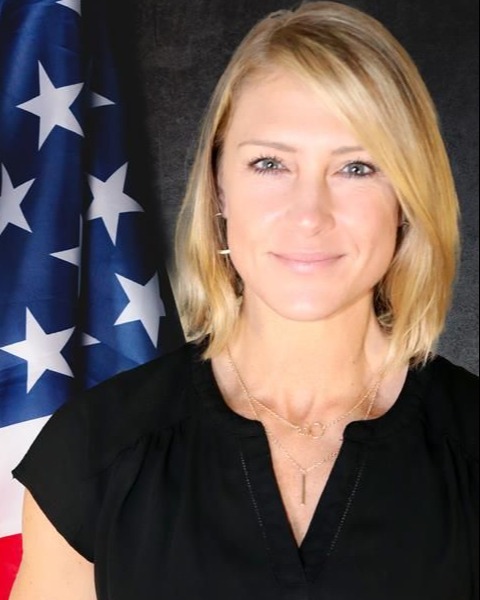Behavioral and Social Sciences
Future of Caregiving: Innovative Solutions and Challenges With Novel Nonpharmacological Interventions
-

Jyoti Savla, PhD, FGSA
Professor
Center for Gerontology & Dept. of Human Development & Family Science
Virginia Tech
Blacksburg, Virginia, United States -

Lauren Hagemann, PhD (she/her/hers)
Clinical Psychologist
Center for Aging & Cognitive Services
Salem VA Healthcare System
Salem, Virginia, United States -
JM
Jennifer Martindale-Adams, EdD (she/her/hers)
Professor, Department of Preventive Medicine
Preventive Medicine
University of Tennessee Health Science Center
Memphis, Tennessee, United States -
JL
JeongEun Lee, PhD (she/her/hers)
Associate Professor
Human Development and Family Studies
Iowa State University
Ames, Iowa, United States -

Jyoti Savla, PhD, FGSA
Professor
Center for Gerontology & Dept. of Human Development & Family Science
Virginia Tech
Blacksburg, Virginia, United States -
NR
Nicole Ruggiano, PhD, MSW, FGA (she/her/hers)
Professor and Associate Dean of Research
School of Social Work
University of Alabama
Tuscaloosa, Alabama, United States
Chair(s)
Co-Chair(s)
Individual Symposium Abstract First Author(s)
As we explore the evolving landscape of family caregiving, it becomes clear that caregiving roles offer fulfillment but also pose unique mental health challenges for caregivers of persons living with dementia. These challenges stem from expanded responsibilities and managing dementia-related behaviors. Research emphasizes the intertwined well-being of caregivers and their care recipients, highlighting the need for interventions that support caregivers' mental health and improve their capacity to address their care recipients’ needs. This symposium aims to assess the effectiveness of novel non-pharmacological interventions, marking a step forward in our approach to caregiver support and improving caregiving dynamics overall. Martinsdale-Adams et al. explore the Annie Caregiver Text program, a text-message intervention based on the REACH-VA protocol, showing its success in improving the management of dementia-related behaviors and reducing caregiver stress. Lee et al. examine the Powerful Tools for Caregivers (PTC) program, assessing its effectiveness in enhancing self-care and communication skills, whether delivered in-person or remotely. Savla et al. share results from an RCT that compares the effectiveness of a mindfulness-based intervention, Practice of Acceptance, Awareness, and Compassion in Caregiving (PAACC), with REACH-VA, focusing on reducing caregiver anxiety and increasing compassion. Ruggiano et al. analyze the Alabama Caregiver Connect initiative, aimed at simplifying access for caregivers to essential dementia care information through interactive, AI-enhanced web tools, including ChatGPT and chatbots. Together, these empirically-validated programs offer novel non-pharmacological options for managing caregiving responsibilities and addressing dementia-related behaviors of relatives, exploring the challenges and solutions for implementing these programs for family caregivers.
Learning Objectives:
- identify and critique the efficacy of diverse non-pharmacological interventions aimed at bolstering caregiver well-being.
- describe the integration of technological solutions and innovative communication methods, such as AI-driven tools and text messaging, in delivering accessible and impactful caregiver support programs.
- implement mindfulness and acceptance-based approaches within caregiver support programs to reduce stress and anxiety, foster compassion, and enhance the caregiving experience overall.
Presentations:
-
8:00 AM - 9:30 AM PSTAnnie Caregiver Text Program: A Lifeline in Managing Dementia Behaviors and Stress
Individual Symposium Abstract First Author: Jennifer L. Martindale-Adams, EdD (she/her/hers) – University of Tennessee Health Science Center
-
8:00 AM - 9:30 AM PSTThe Powerful Tools for Caregivers Toolkit: Enhancing Self-Care and Communication for Quality Care
Individual Symposium Abstract First Author: JeongEun Lee, PhD (she/her/hers) – Iowa State University
-
8:00 AM - 9:30 AM PSTFrom REACH to Mindfulness: Shifting Paradigms in Support of Caregivers of Veterans Living With Dementia
Individual Symposium Abstract First Author: Jyoti Savla, PhD, FGSA – Virginia Tech
-
8:00 AM - 9:30 AM PSTGoing BOLDer: Promoting Dementia Infrastructure Through Interactive and AI Web-Based Tools
Individual Symposium Abstract First Author: Nicole Ruggiano, PhD, MSW, FGA (she/her/hers) – University of Alabama
